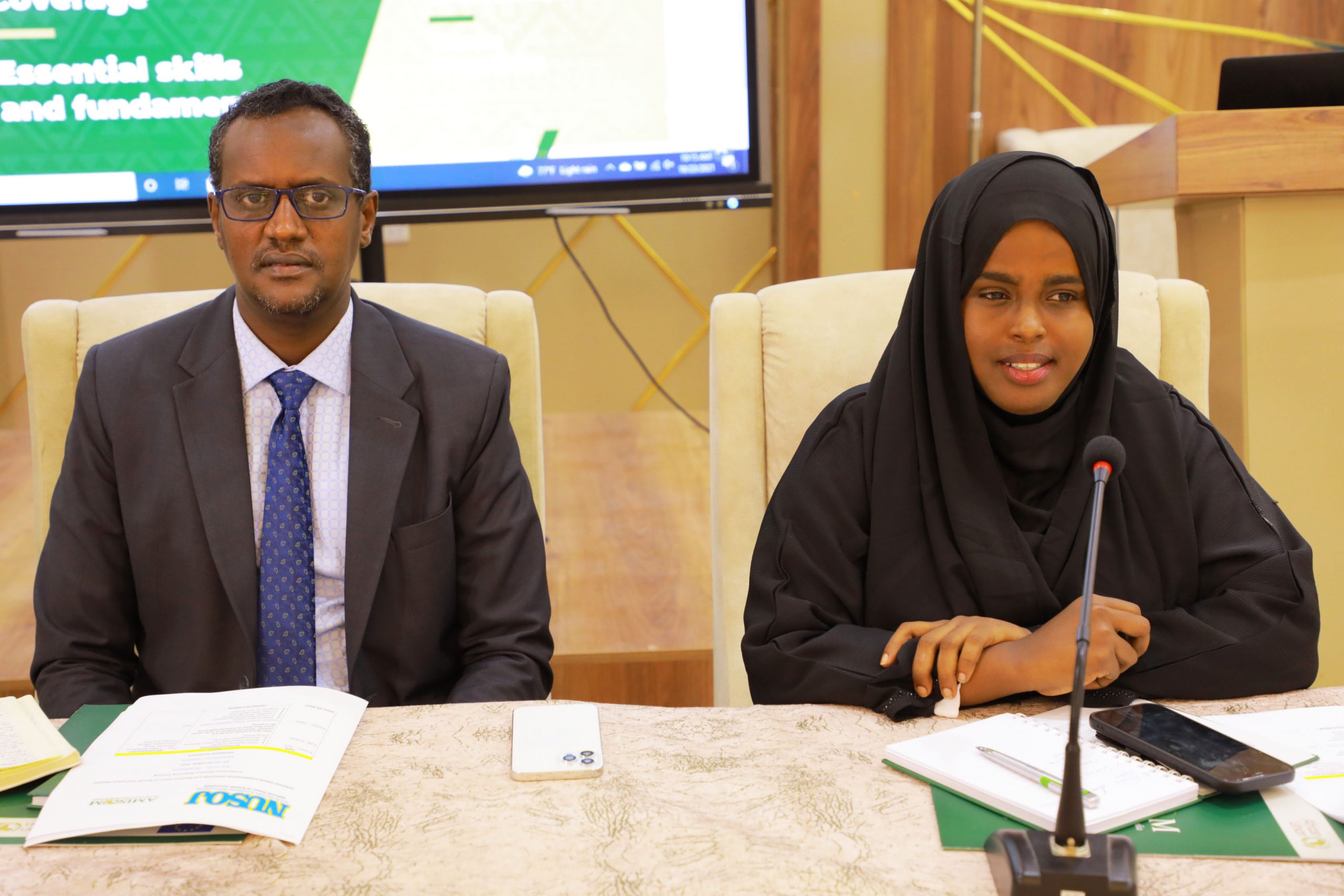The National Union of Somali Journalists (NUSOJ) in partnership with the African Union Commission (AUC) successfully concluded a training seminar for 25 journalists from Mogadishu and the five (5) Federal Member States of Somalia on professional coverage of Somalia elections.

The training, which was held in Mogadishu on 23-24 October, was made possible by financial support from the African Union Commission through the Office of Political Affairs of the African Union Mission to Somalia (AMISOM).

“From the point of view of outcome as well as progress, this is an exciting time,” says Ms. Nima Hassan Abdi, NUSOJ’s Organising Secretary. “Somalia’s ongoing election is important in regards to the potential and opportunities it can yield, politically, socially and economically. But with the professional training of journalists, media professionals are able to witness the process unfolding in real time, journalists can accurately capture the dynamic nature of this period in Somalia’s history. These journalists are now equipped with the skills and knowledge to report on the elections in a fair, accurate, balanced and peaceful manner. This represented a significant step towards providing the public with accurate information, one of the cornerstones of democracy.”

This capacity building programme for journalists was momentous as it is the first of its kind approved by Chairperson of the African Union (AU) Commission, H.E. Moussa Faki Mahamat. The action was part of the package of support initiated by Ambassador Bankole Adeoye, AU Commissioner for Political Affairs, Peace and Security, designed to help support Somalia’s elections.

NUSOJ is very encouraged by the overt commitment of such strategic organisations to increased media professionalism and standards in Somalia. The opening of the seminar set the tone for the remainder of the event with Simon Mulongo, Acting Head of AMISOM and Deputy Special Representative of the Chairperson of the AU Commission, assuring participants that the AU views the media as a key player in promoting peaceful, free and fair elections for Somalia. Mr Mulongo was clear and unequivocal in his assertion that the AU is keen to promote a conducive working environment for journalists before, during and after the elections. “It is this climate that will allow journalists to exercise and exceed their duties and professional responsibilities” he said.

In a similar vein, Mohamed Hassan Irro, Chairperson of Federal Elections Implementation Team (FEIT) and keynote speaker at the seminar, noted that it is incumbent upon journalists to accurately assist and inform Somali citizens about the process and outcomes of the election. This contributes to the dispelling of rumour, anxieties and misinformation among communities regarding elections. In articulating that journalists are the indispensable companion for the electoral process, Mr Irro reiterated the importance of strengthening the capacity of local journalists.

As an organisation that remains steadfast in its efforts to promote the rights of journalists and improve standards to journalism in the country, NUSOJ, which has already trained 200 local journalists to report effectively while staying safe in partnership with UNESCO, saw this training seminar as timely and instrumental.

Nima Hassan Abdi, Organising Secretary of NUSOJ noted that building the capacity of journalists to professionally and effectively report on the elections, is part of an important foundation upon which the future of a stable and peaceful Somalia rests.

In addition to enhancing the professionalism of journalists, NUSOJ has been advocating for a safer working environment for journalists during the elections. This includes finding a balance between upholding the inalienable right of freedom of expression with the combatting of all forms of hate speech and the incitement of violence.

NUSOJ is deeply appreciative to the AMISON and the AU Commission in general, for believing in and supporting its vision for media professionalism and a safe working environment for journalists in the pursuit of freedom and democracy.

